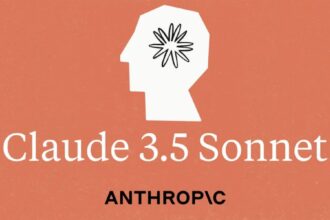Quantum AI is a revolutionary technology that promises to change the world just as digital computers once did. While computers transformed our lives, the potential impact of Quantum AI could be even greater. Imagine computers that can solve problems millions of times faster than today’s devices, tackling tasks that would be impossible for traditional computers.
Here are ten mind-blowing facts about Quantum AI that will make you rethink what’s possible.
1. Quantum AI Uses Qubits Instead of Bits
Quantum AI relies on qubits, the fundamental units of quantum information, instead of the traditional bits in digital computers. Unlike bits, which can only be in one state (0 or 1), qubits can exist in a state called “superposition,” where they are both 0 and 1 at the same time. This allows Quantum AI to perform multiple calculations at once, making it significantly faster for specific tasks.
Furthermore, qubits can be “entangled,” meaning the state of one qubit is linked to another, even if they are far apart. This unique feature enables Quantum AI to solve complex problems more efficiently than classical computers.
2. Quantum AI Computers Can Break Modern Encryption
With their massive computational power, Quantum AI computers could potentially break modern encryption methods. Quantum algorithms, such as Shor’s algorithm, can factor large numbers quickly, something that’s foundational to encryptions like RSA. Traditional computers would need years to break such encryption, but Quantum AI could do it in minutes. This has led to increased efforts to develop “quantum-resistant” cryptography to protect sensitive information in the future.
3. Quantum AI Encryption is Extremely Difficult to Break
Quantum AI also provides ultra-secure encryption methods. Quantum encryption relies on the unique properties of quantum particles, making it extremely difficult for anyone to intercept or tamper with the data. Attempts to access these quantum-encrypted channels disturb the data itself, alerting the intended recipients to any eavesdropping. This level of security could redefine data privacy.

4. Quantum AI Sensors Can Detect Tiny Changes in the Environment
Quantum AI sensors are incredibly precise, capable of detecting even the slightest changes in the environment. Using principles from quantum mechanics, these sensors can measure minute variations in temperature, pressure and magnetic fields. This could revolutionize fields like medicine, environmental monitoring and infrastructure management by providing highly detailed, real-time data.
5. Predicting the Future
While it sounds like science fiction, Quantum AI could predict outcomes by identifying patterns in vast data sets. Quantum AI’s processing power allows it to analyze complex data faster and more accurately than traditional methods. This potential is especially valuable in machine learning, where Quantum AI could enhance prediction accuracy in fields such as finance, weather forecasting and more.
6. Advancing Robotics
Quantum AI could lead to major breakthroughs in robotics. Quantum machine learning can make robots smarter and more adaptive, allowing them to learn from experience in ways previously unimaginable. This could lead to robots capable of performing complex tasks, from autonomous driving to assisting in medical procedures.
7. Quantum AI Radar Can Detect Stealth Aircraft
Quantum AI’s advanced radar technology can even detect stealth aircraft. Traditional radar systems are often ineffective against these aircraft, as they reflect radar waves in a way that makes them nearly invisible. Quantum AI radar, however, uses quantum entanglement to create pairs of photons that detect even the smallest objects, enhancing accuracy in detecting stealth technology.

8. Quantum AI Can Speed Up Drug Discovery
Drug discovery is a long, costly process, but Quantum AI could streamline it by simulating molecular interactions with unparalleled accuracy. Quantum AI can run numerous simulations simultaneously, drastically reducing the time and resources needed to identify effective drugs. This could lead to faster, safer drug development and fewer animal tests and clinical trials.
9. Quantum-Resistant Algorithms
As quantum computing grows, there is an increasing need for algorithms that can resist quantum-based decryption. Quantum AI is at the forefront of developing quantum-resistant algorithms, ensuring the future security of digital data. This is essential for keeping sensitive information safe as quantum computing becomes more accessible.
10. Revolutionizing Industries
Quantum AI is not just theoretical; it’s already transforming industries like finance, healthcare and cybersecurity. In finance, it helps optimize trading strategies and manage risks. In healthcare, it aids in personalized medicine and complex problem-solving, like genome sequencing. Quantum AI’s impact is already visible and its potential for future applications is boundless.
Quantum AI represents a leap forward in computing, unlocking possibilities beyond what traditional computers can achieve. From breaking modern encryption to revolutionizing drug discovery, Quantum AI is set to change the world. As this technology continues to develop, its impact across industries will only grow, making it one of the most exciting fields to watch in the coming years.









